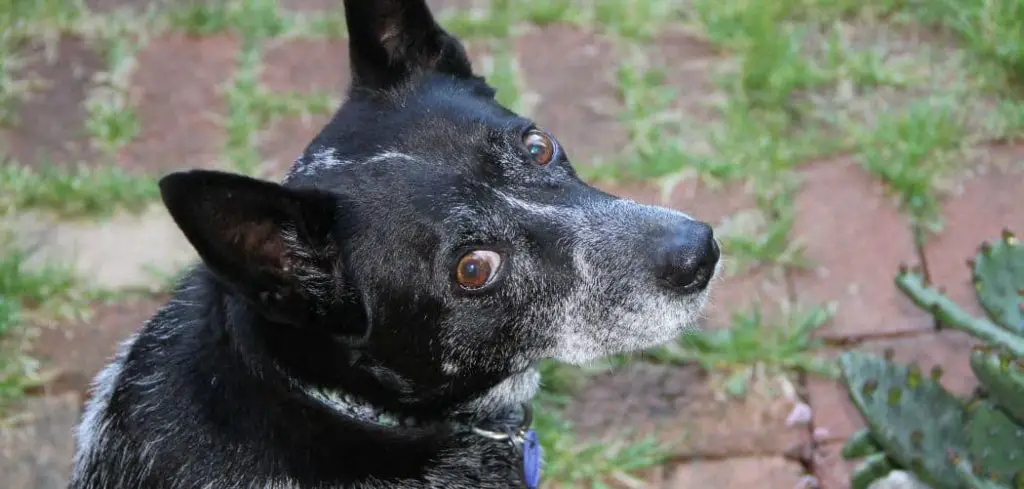Noticing your dog panting heavily while also backing up can be unsettling for any owner. These combined behaviors may signal fear, pain, or even a serious medical condition that needs prompt attention.
We outline the common reasons why dog panting and backing up occur, what you can do at home, and when to seek veterinary help.
Table of Contents
Dog Panting and Backing Up — Why It Happens
Dogs pant and back up due to fearful reactions to sudden stimuli, joint pain, spinal problems, or internal illness. Sometimes, dogs back away to create space from something they perceive as threatening, while panting signals physical exertion, stress, or overheating.
In more severe cases, panting can indicate pain or respiratory distress, and backing up may be a sign of discomfort or loss of balance.

Dog Panting and Backing Up: Common Causes
Anxiety or Fear
Anxiety is one of the most frequent causes of a dog panting and backing up. Loud noises, unfamiliar environments, or the presence of other animals can make a dog feel threatened.
Panting is a natural canine stress response, helping them regulate their body temperature when adrenaline spikes.
Backing up is often a physical attempt to put distance between themselves and the perceived threat.
If left unaddressed, anxiety can become chronic, leading to ongoing stress behaviors and reduced quality of life.
Read more: Dog Panting and Barking in Crate (Here’s why)
Pain or Injury
Pain from arthritis, joint problems, or soft tissue injuries can make a dog hesitant to move forward. Instead, they may back up to avoid putting pressure on a sore limb or joint.
Panting often accompanies pain as a physiological reaction. You might also notice limping, reluctance to jump, or whining.
Pain-related behaviors should always be taken seriously, as dogs often hide discomfort until it becomes significant.
Neurological Disorders
Certain neurological conditions can cause both panting and unusual movement patterns like backing up. Disorders affecting the spinal cord or brain may interfere with coordination and spatial awareness.
Dogs may back away because moving forward feels unstable, while panting can be a response to the physical strain of trying to maintain balance.
These cases require urgent veterinary evaluation to prevent worsening symptoms.
Heat Stress or Overheating
Overheating causes rapid panting as dogs attempt to cool down. If a dog becomes disoriented from heat stress, they may back up in confusion.
Heat stress can escalate quickly to heatstroke, a life-threatening emergency. Other warning signs include drooling, red gums, and collapse.
Dogs left in hot environments or exercised excessively in warm weather are at the greatest risk.
Vision Problems
When a dog cannot clearly see what’s in front of them, they may back away for safety. Panting may occur if the dog feels stressed by their limited vision.
Eye conditions like cataracts, glaucoma, or retinal disease can cause these behaviors. Dogs rely heavily on visual cues, and vision loss can be disorienting.
Prompt treatment can help manage discomfort and slow progression of certain eye diseases.
Gastrointestinal Discomfort
Pain or cramping from digestive upset can cause a dog to shift positions frequently, sometimes backing up to alleviate discomfort.
Panting may result from nausea, bloating, or internal pain. Serious GI issues like bloat require immediate veterinary care.
A dog showing these symptoms along with a distended abdomen, retching, or collapse should be seen urgently.
What to Do If Your Dog Is Panting and Backing Up
First, assess your dog’s environment for immediate threats or stress triggers. Remove any loud noises, unfamiliar animals, or objects that might be causing fear.
Check for signs of pain, such as limping, stiffness, or sensitivity when touched. If your dog appears overheated, move them to a cool, shaded area and provide fresh water.
Stay calm and use a reassuring tone. Overreacting can increase your dog’s anxiety. Monitor their breathing rate and body posture closely.
If the behavior persists for more than a few minutes, or you notice other concerning signs like collapse, confusion, or vomiting, contact your veterinarian.
When to Call or Visit Your Vet
Seek immediate veterinary attention if your dog is panting and backing up along with:
Sudden collapse or severe weakness
Continuous vomiting or retching
Difficulty breathing or extremely rapid panting
Loss of coordination or inability to walk straight
Signs of severe pain, such as yelping when touched
Even if symptoms are mild but persistent, a vet visit is important to rule out underlying health issues.
Read more: Dog Panting and Back Legs Shaking (Should you worry?)
Key Takeaway
Panting and backing up in dogs can result from anxiety, pain, heat stress, neurological issues, or other health concerns. Some causes are mild and temporary, while others are serious and require urgent care.
Observing your dog’s overall condition, identifying potential triggers, and acting quickly can make a significant difference in their outcome.
When in doubt, a veterinary exam is always the safest route to protect your dog’s health and well-being.
